Traverse Technologies
Networking
Embedded Linux Boards
Traverse Technologies
Networking
Embedded Linux Boards
The Ten64 board is a networking-focused appliance with an eight-core, 64-bit ARM CPU. With expansion slots for SSDs, cellular and Wi-Fi modules, and 10 gigabit SFP+ cages, it is especially suited for 4G/5G gateways, local edge gateways for cloud architectures, IoT gateways, and network-attached-storage (NAS) devices for home and office use.
Ten64 is built around NXP’s LS1088A SoC and exposes as much of the connectivity in the LS1088A as possible. There are eight gigabit Ethernet ports, as well as two 10 gigabit SFP+ cages, useful for multi-gigabit internet connections and feeding NBASE-T-capable wireless access points. All the network ports are individual controllers (not via a switch), which allows you to isolate devices used for different purposes (such as workstations and IoT devices).
On the board itself, there is a DDR4 SO-DIMM slot that supports up to 32 GB of memory with ECC, an M.2 Key M with support for NVMe SSDs, two Mini-PCIe slots for Wi-Fi or AI accelerators, and an M.2 Key B slot capable of taking a 4G/5G cellular modem, smaller (42 mm tall) NVMe SSD, or SATA controller card.
Ten64 handles gigabit internet traffic with ease, and has the ability to reach even higher speeds using technologies such as XDP, DPDK and AIOP.
Ten64 can leverage its multiple cores to route or bridge 10G of traffic - see our performance article on options for 10G connectivity and future options for improving efficiency.
Above are results from an actual speed test performed with two Ten64s acting as a wireless bridge, each with an 802.11ac 4x4 card. As the objective was to test the maximum attainable throughput, the Ten64 units were located on opposite sides of the same room. The speed test client is connected behind the bridge client with gigabit Ethernet.
The above initial speed test results show Ten64 can already achieve >500 Mbps. We fully expect 5G network deployments to offer peak speeds over a gigabit, which makes Ten64 ideal for "fixed wireless" applications.
Ten64 is built to handle 5G cellular modems - it is one of the first boards to accommodate extended length modem cards and make available a PCIe 3 lane to the modem. To support the ever-increasing number of antennas in modern wireless standards (sub-6 GHz 5G and Wi-Fi 6), our desktop enclosure has 11 antenna mounting positions!
With eight cores and ample RAM, Ten64 is perfect for hosting your private cloud applications. Consolidate both your network and applications into a single convenient box. Our open source μVirt firmware provides a quick starting point for both your local network connectivity and application hosting requirements.
We maintain a list of common applications that are known to work, including Rockstor NAS, Nextcloud, WebThings, Home Assistant, UniFi Controller, and others.
No more searching around for sacrificial SD cards or flash drives! Ten64’s onboard recovery firmware and bare metal appliance store allow you to download and install distribution images, partition your NVMe drive, chroot, and other common maintenance tasks.
Anyone who has done embedded Linux development, especially in the networking space, knows how much of a nuisance non-mainline kernels and drivers can be.
This is why we have designed Ten64 to run "mainline" Linux kernels and distributions. This ensures you can use the latest features as they become available, while also keeping up to date with the latest security patches. Ten64 implements support for the ARM Embedded Boot Base specification (EBBR) and will boot standard ARM64 Linux distributions provided they have the correct hardware drivers built into the kernel. We are committed to upstreaming any changes we make back to the upstream projects as soon as possible.
Because Ten64 is one of the first boards shipping with NXP’s DPAA2 hardware, distribution support is bit spotty in the short term - check our distribution list for more details. To ease interoperability issues in the short term, the appliance store feature can apply fixes to Linux distributions when you install them.
We have endeavoured to make as much of the Ten64 as open as we could. While we are unable to make the design fully open hardware for commercial reasons, the following information will be available:
The only binary firmware required is the NXP DPAA2 Management Complex Firmware, which is required to use the networking (Ethernet ports) and some security acceleration features on the LS1088 - and runs on a dedicated microcontroller core inside the LS1088. This firmware is loaded by U-Boot from a file or partition just before reaching the U-Boot prompt.
The boot firmware on the Ten64 can be loaded from either the onboard flash or SD card; switching between the two can be done via DIP switch as well as an I²C command to the board microcontroller. This allows low-level firmware (Trusted Firmware and U-Boot) to be developed without fear of bricking the board.
If you need to do some low-level debugging, you can use OpenOCD and gdb to debug the boot firmware via JTAG. There is also a "developer" header on the board which can be used to control it from another board — handy for bare-metal CI/CD applications or building your own BMC/IPMI-like functionality.
Ten64 works with DDR4 SO-DIMM’s up to 32GB, both with and without ECC (error correcting code) support. Most modules currently available on the market should work, but we encourage you to check our memory compatibility list for a list of tested modules.
If you are unsure, an 8GB memory module is available to purchase from Crowd Supply.
Every Ten64 comes with our compact (200 mm x 200 mm x 45 mm) desktop enclosure, with eleven antenna holes to cater to MIMO applications involving (non-mm-wave) 5G modems and 8x8 Wi-Fi. We also include a 2.5 mm barrel 12 VDC power supply, SIM eject tool, and 2.5 mm hex key for access panel removal.
You will also need an IEC C13 power cord and USB-C cable for the serial console.
A ATX power adapter cable and standalone fan is included in the Ten64 package if you wish to install your Ten64 in a Mini-ITX/ATX case.
Regrettably, due to regulatory and support requirements we are unable to bundle Wi-Fi cards or cellular modems with Ten64. However, there are no firmware blockers on which cards you can use with the board. A list of known working cards can be found on our Hardware Compatibility List.
We see Ten64 as a step between smaller embedded boards (like the Turris Omnia) and full blown x86 mini-servers and NAS appliances, while giving you control over the software you run. Ten64’s design also allows you to converge your wireline/wireless network and personal cloud, instead of splitting them between a standalone router and NAS appliance.
| Ten64 | QNAP TS-253D-4G | SuperMicro E300-8D | MacchiatoBin | Turris Omnia | |
|---|---|---|---|---|---|
| CPU | 8 x Cortex-A53, 64-bit ARMv8 | Intel Celeron J4125, 4 Core | Xeon D-1518, Broadwell 4 Core | 4 x Cortex-A72, 64-bit ARMv8 | 2 x Marvell Armada, 32-bit ARMv7 |
| Processor Clock Speed | 1.6 GHz | 2.0GHz (2.7GHz boost) | 2.2 GHz | 2 GHz | 1.6 GHz |
| Typical SoC thermal design power | 10 W | 10 W | 35 W | 15 W | 5 W |
| Memory | Up to 32 GB DDR4 SO-DIMM, ECC | max 8 GB (4 GB SO-DIMM installed) | 4 DIMM, up to 128 GB (RDIMM) | Up to 16 GB DDR4 DIMM, with ECC | 2 GB, soldered down |
| Onboard flash | 256 MB SPI-NAND, 8 MB SPI NOR | 4 GB | N/A | eMMC, SPI NOR | 8 GB eMMC |
| Storage options | M.2 Key M80 NVMe (2xPCIe 3.0), M.2 Key B also accepts NVMe (single lane PCIe3) | 2 x SATA drive bay | 1 M.2 PCIe, 1 mSATA, 4 x SATA 3.0 | 3 x SATA 3.0 | mSATA |
| Ethernet | 8 x 1GBase-T, 2 x 10G SFP+ | 2x2.5GBase-T | 6x 1G, 2x 1GBase-T | 2 x 10G Combo, 1x2.5G SFP, 1x1G | 5 x 1G LAN, 1 x 1G WAN |
| Advanced networking support (DPDK, XDP, etc.) | Yes | No | Yes | Yes | No |
| Wireless/expansion cards | M.2 Key B for LTE/5G, 2 x MiniPCIe for Wi-Fi or SATA controller | Dual 4x4 WiFI PCIe card available, no cellular | Only 1 via mPCIe or PCIe riser | N/A | 2 x MiniPCIe for Wi-Fi + 1x mSATA |
| SIM card | SIM/SD card tray – supports dual-SIM with compatible module | None | None | None | SIM card holder on PCB |
| Virtualization support | Yes | Yes | Yes | Yes | No |
| Security elements | TPM chip + QorIQ Trust Architecture | None | Optional TPM | N/A | Microchip ATSHA |
| Serial console | Onboard USB-C, +GPIO Header | No (but has HDMI) | No (but does have IPMI) | miniUSB, UART header | Internal serial header |
| Board control/hackability | Control header with access to power/reset control, UARTs, I²C bus x2, Interrupt-capable I/Os | None | N/A | UART header | GPIO Header |
| Form factor | Mini-ITX | Proprietary | Flex-ATX | Mini-ITX | Custom |
| Enclosure | Desktop enclosure (standard Mini-ITX board) | Desktop NAS | Desktop Flex-ATX | Desktop Enclosure | Desktop Enclosure |
| Power supply | 12 VDC or ATX | 65 W power brick | 12 VDC or ATX | 12 VDC | 12 VDC |
| Base price ($USD), lowest RAM option | $699.00 (no RAM) | $369 | $694 (RAM not included) | $349.00 (4GB, 3 SFP+), $499 (4GB, SFP/10GB-T combo) | $380.00 |
Produced by Traverse Technologies in Melbourne, Australia and Auckland, New Zealand.
Sold and shipped by Crowd Supply.
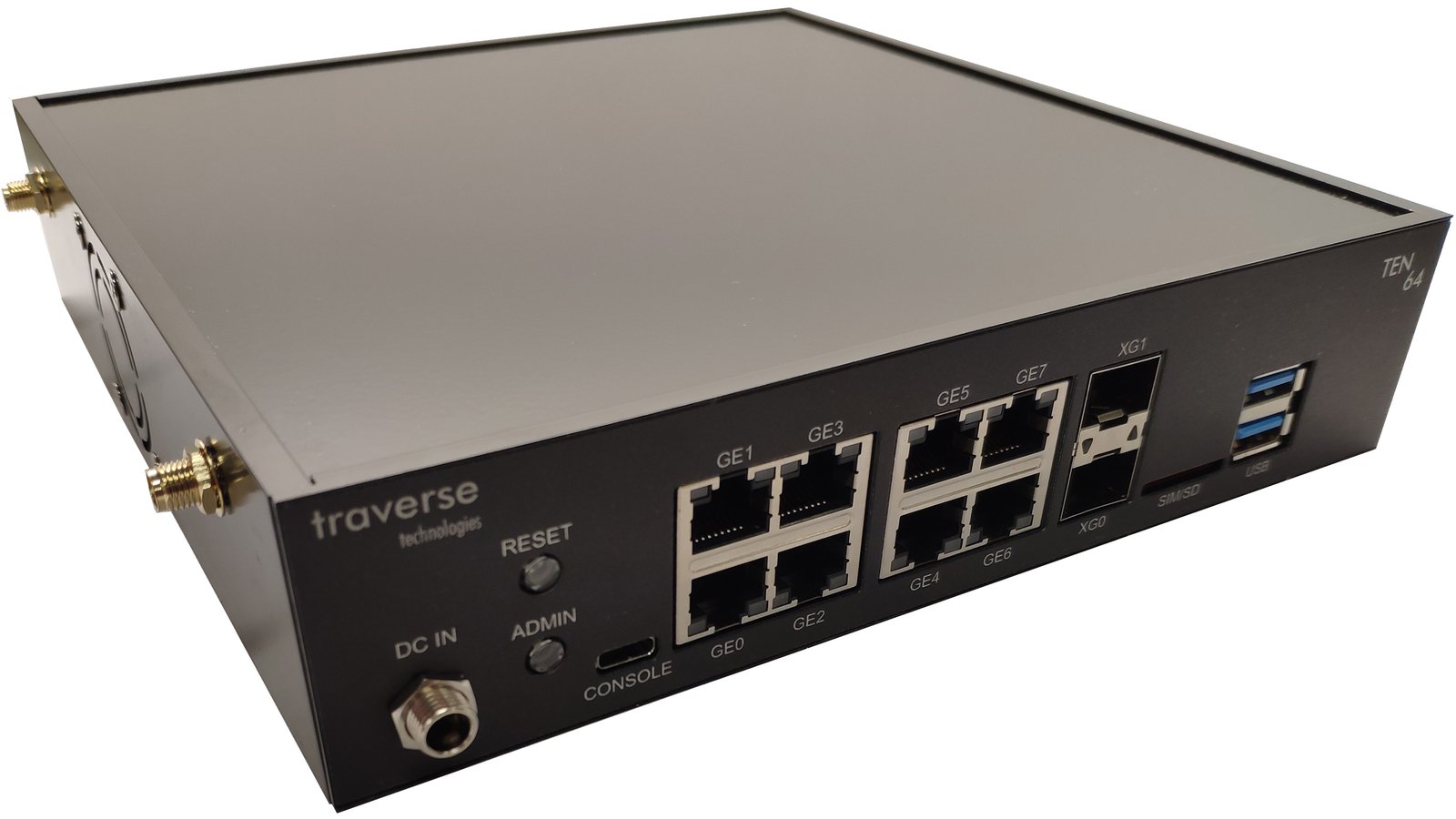
A fully assembled and tested Ten64 mainboard installed in a custom metal enclosure with a fan, 60 W power supply, a recovery microSD card, a SIM eject tool, and a hex key, as you'd expect with any good piece of hardware. RAM with ECC not included. Regional power cord and USB-C console cable sold separately.
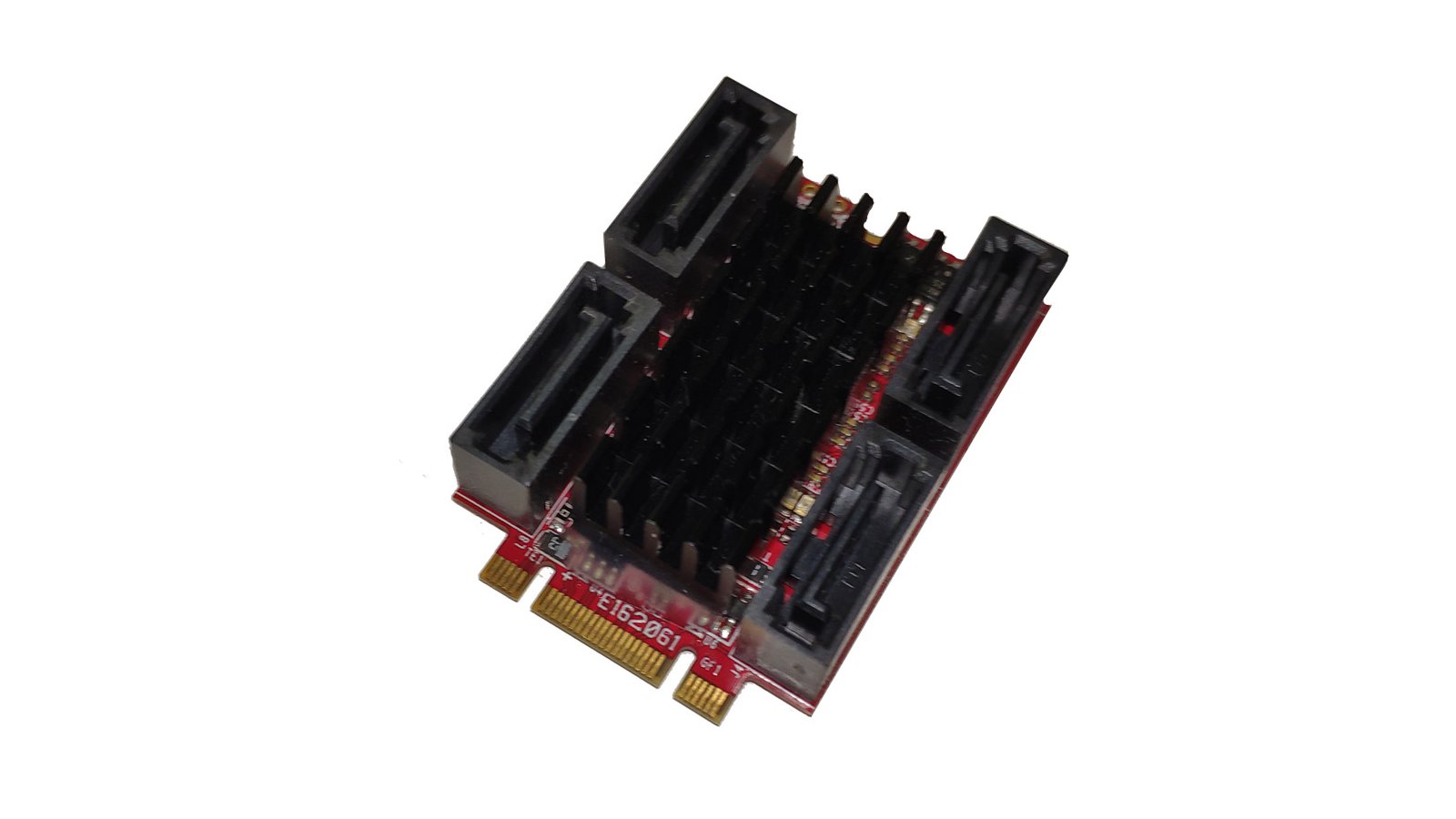
We recommend this SATA controller for Ten64 NAS configurations using CMR HDDs for bulk storage and a standard 22 mm x 80 mm NVMe SSD for boot storage. This controller fits in the Ten64's M.2 Key B slot and uses one lane of PCIe 2.0.
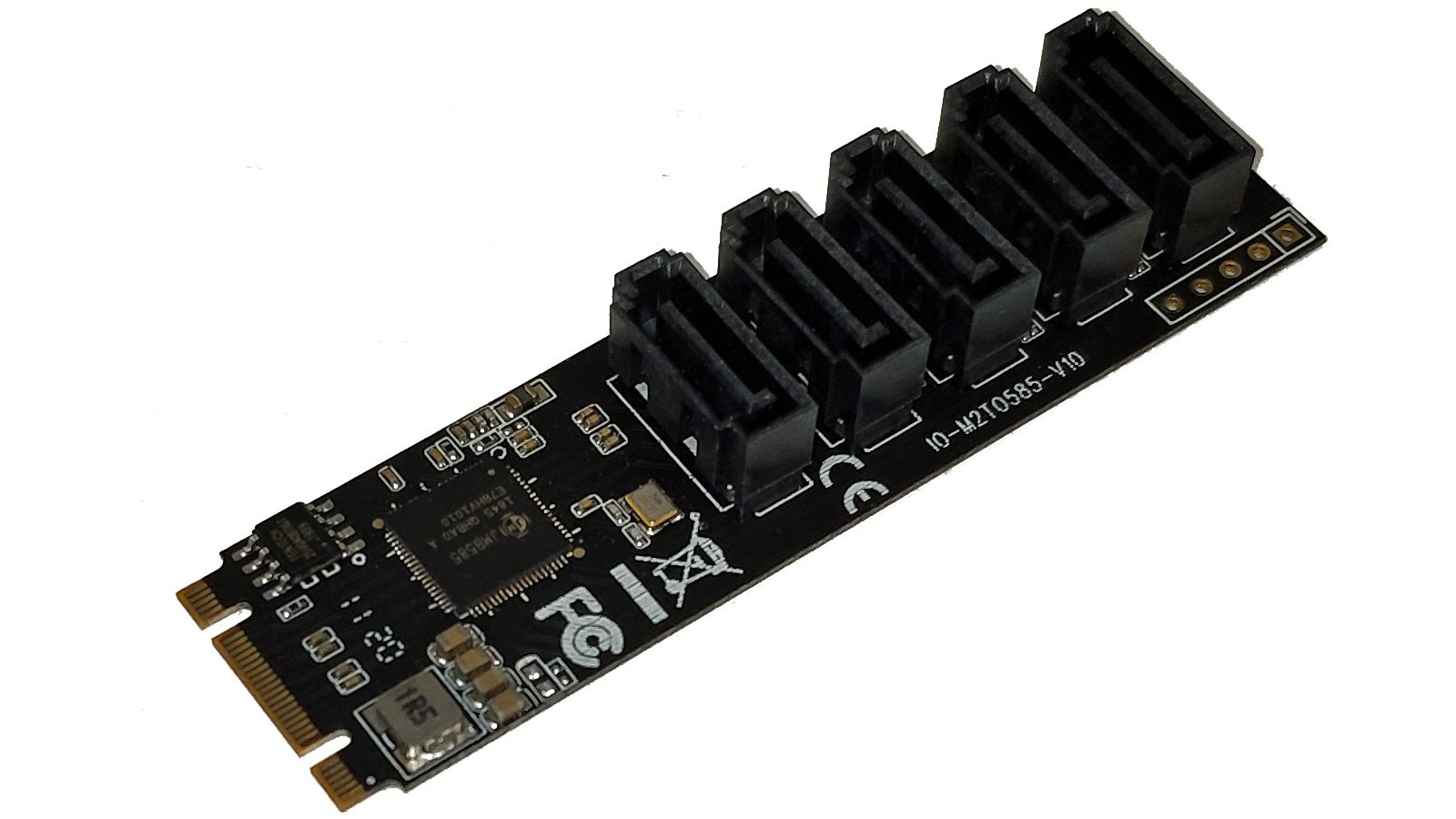
We recommend this SATA controller for Ten64 NAS configurations using Apacer NAS-grade SSDs for bulk storage and a smaller 22 mm x 42 mm NVMe SSD for boot storage. This controller fits in the Ten64's M.2 Key M slot and uses two lanes of PCIe 3.0.

You get a a fully assembled and tested Ten64 mainboard installed in a custom metal enclosure with a fan, 60 W power supply with regional power cord, a USB-C console cable, a recovery microSD card, a SIM eject tool, and a hex key, as you'd expect with any good piece of hardware. RAM with ECC not included.
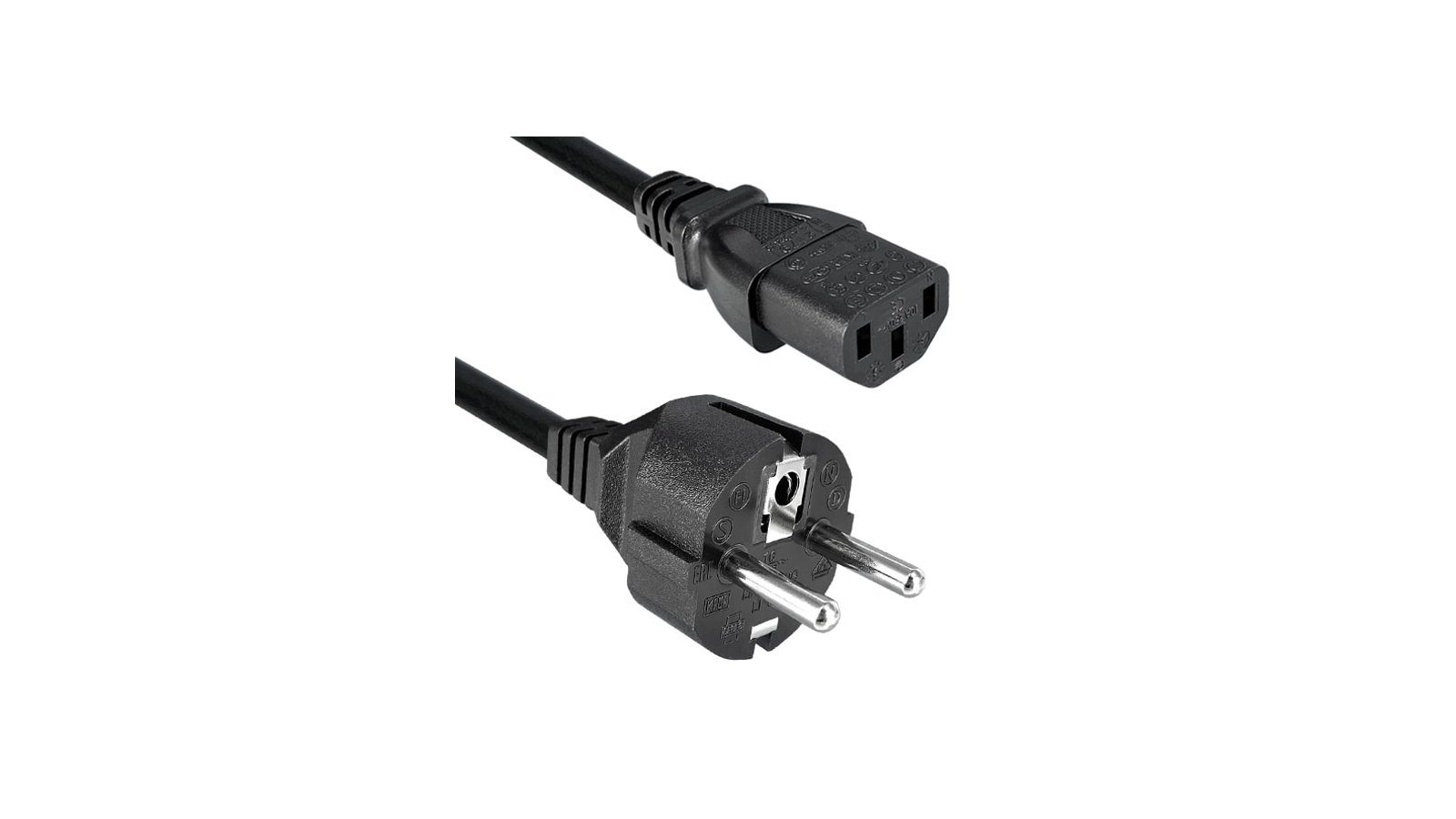
From the Crowd Supply Basics project.
An AC cable with an EU plug and a C13 plug to fit a C14 port.
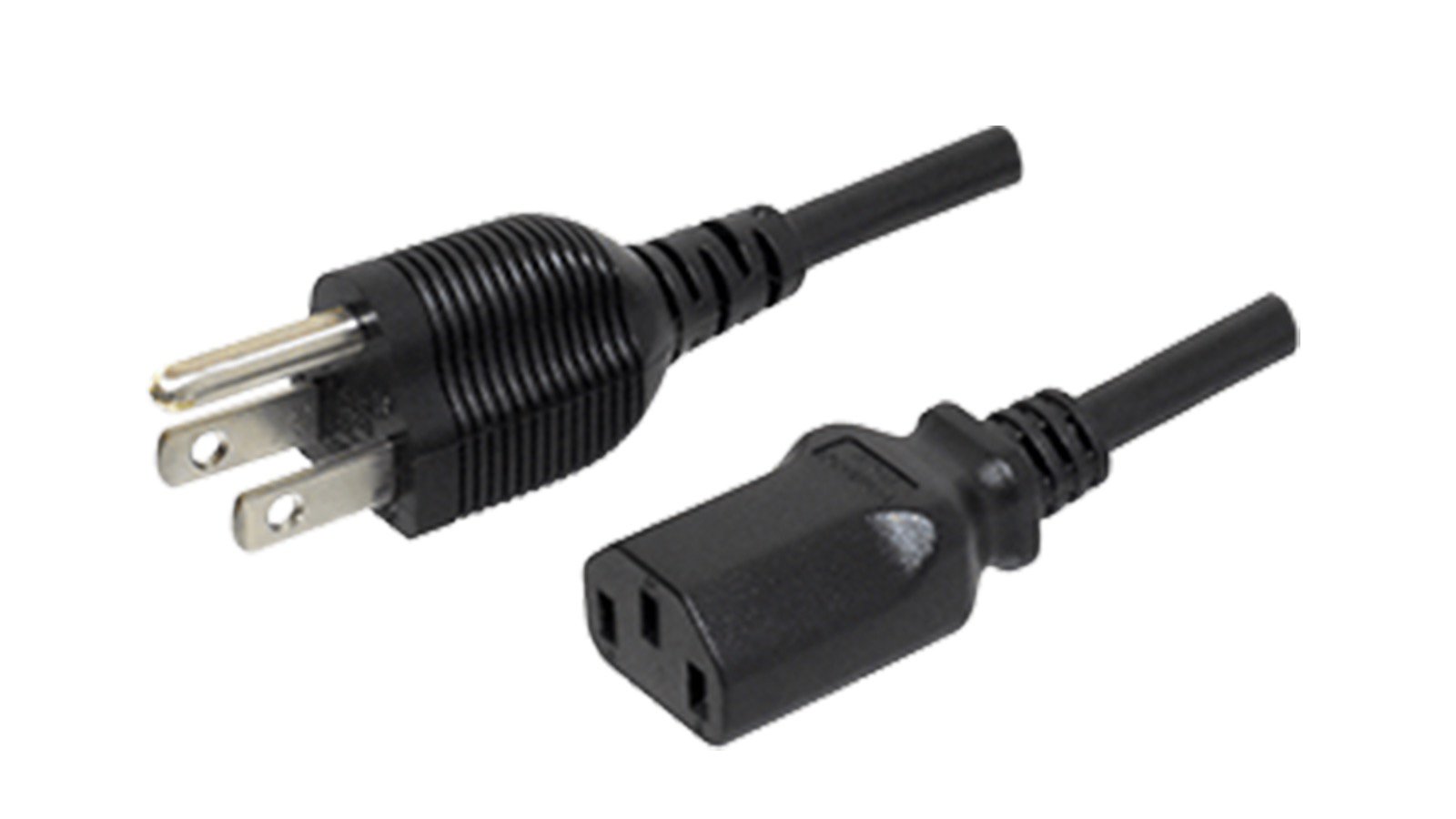
From the Crowd Supply Basics project.
An AC cable with a US plug and a C13 plug to fit a C14 port.
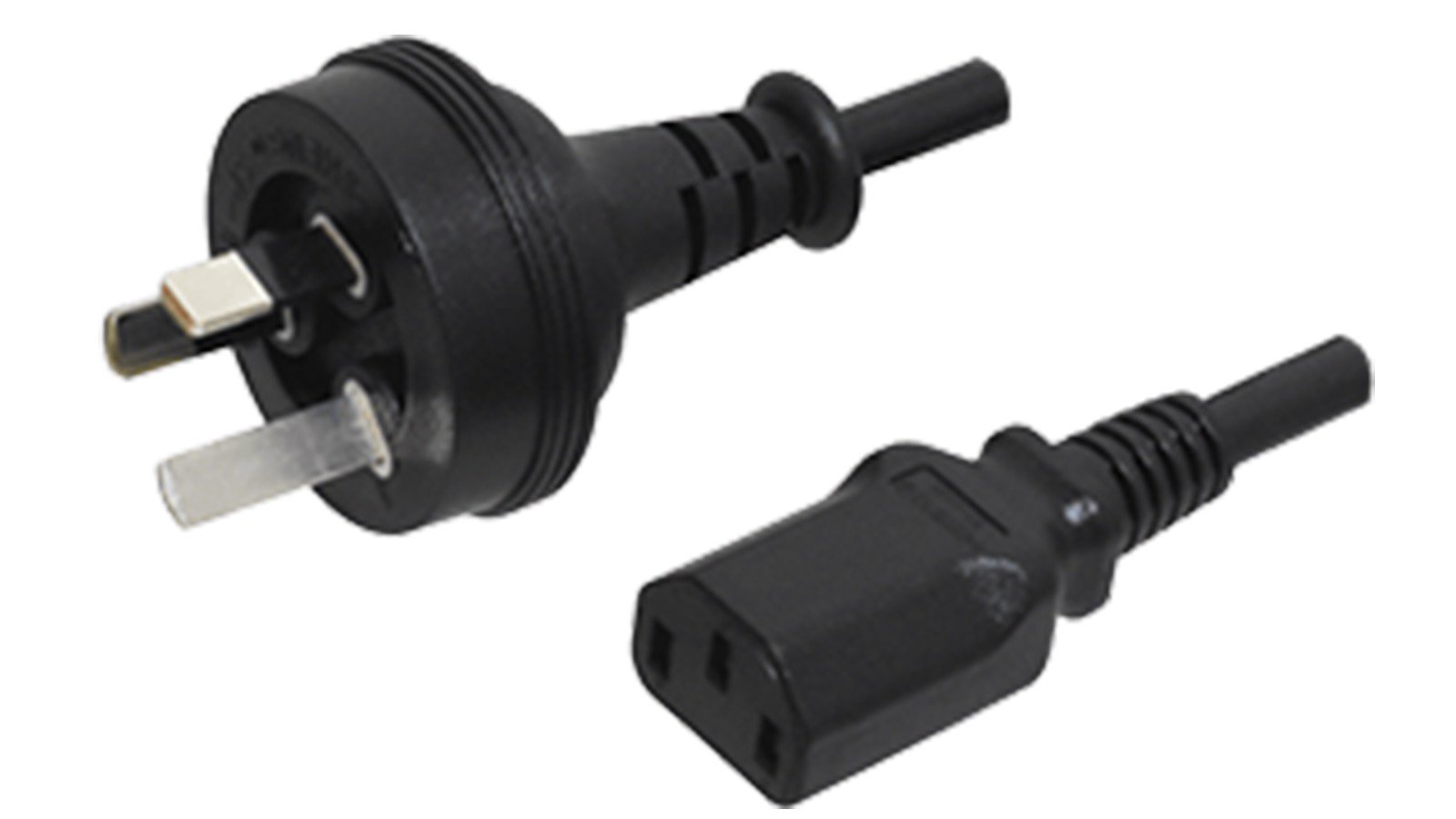
From the Crowd Supply Basics project.
An AC cable with an AU plug and a C13 plug to fit a C14 port.
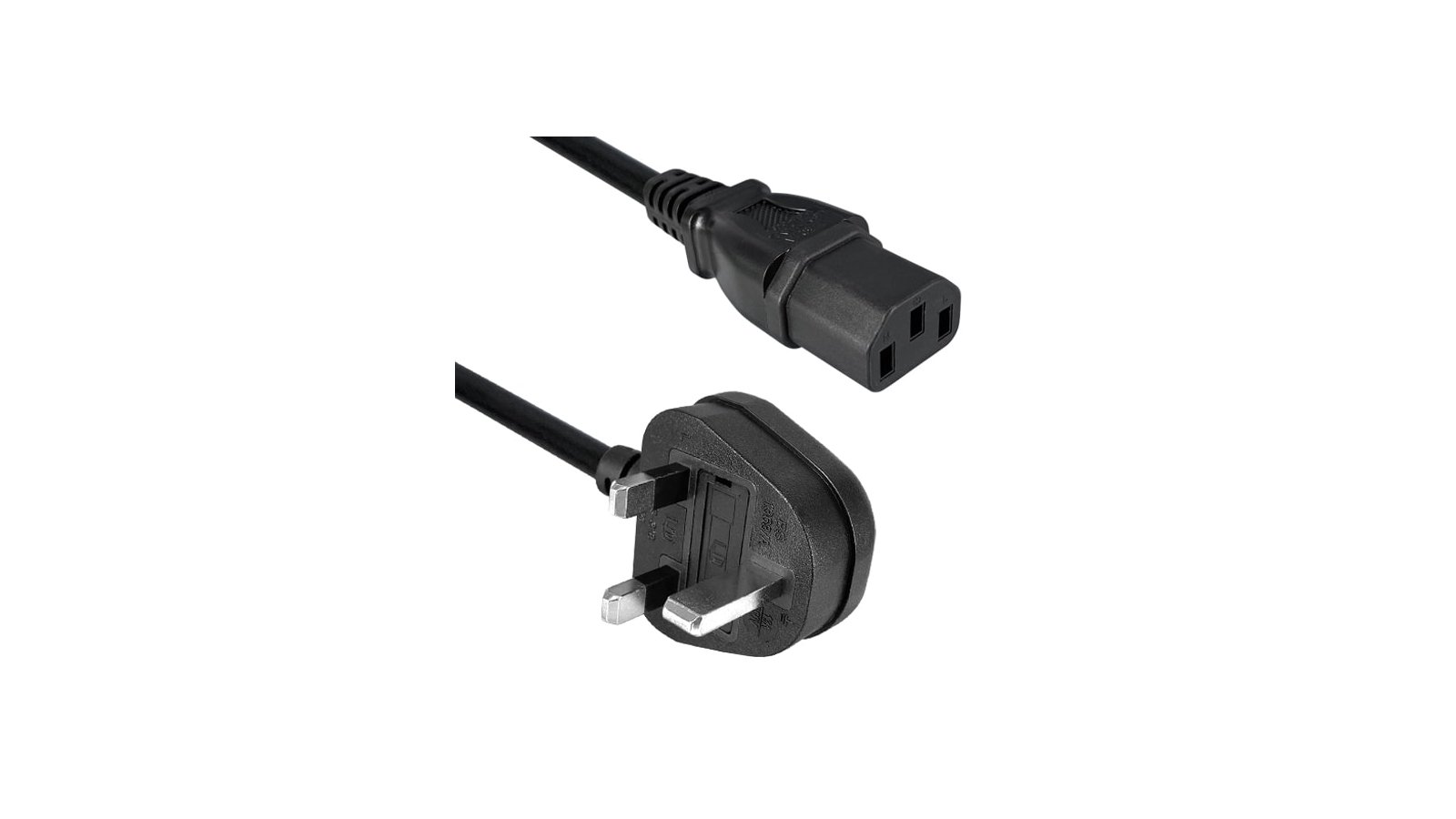
From the Crowd Supply Basics project.
An AC cable with a UK plug and a C13 plug to fit a C14 port.
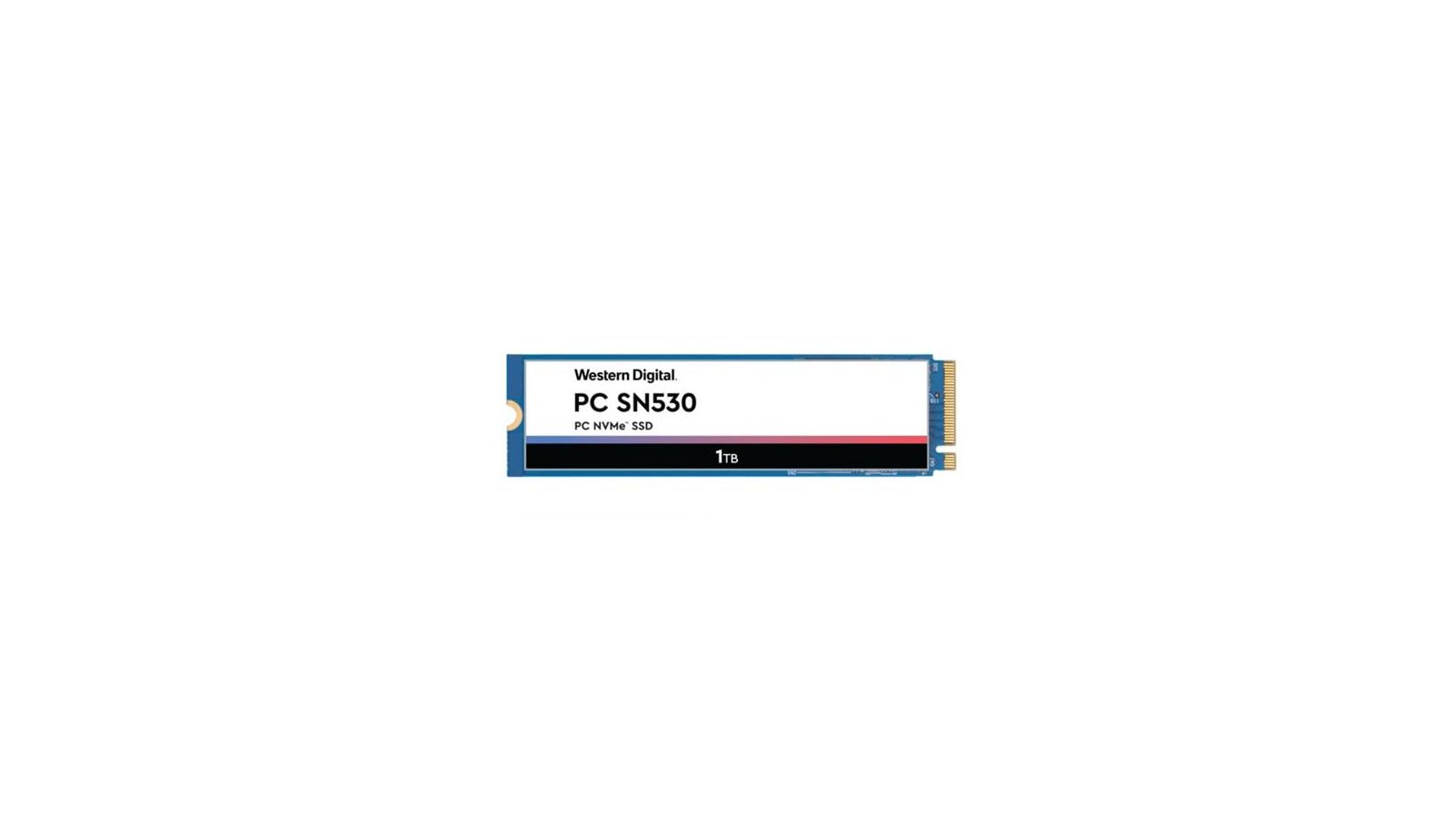
From the Crowd Supply Basics project.
The 128 GB drive is compatible with both the M.2 Key M and M.2 Key B slots on Ten64's mainboard, whereas the 256 GB and 512 GB drives are only compatible with the M.2 Key M slot.
SanDisk NVMe SSDs in various capacities: 256 GB (P/N SDBPNPZ-256G), and 512 GB (P/N SDBPNPZ-512G).
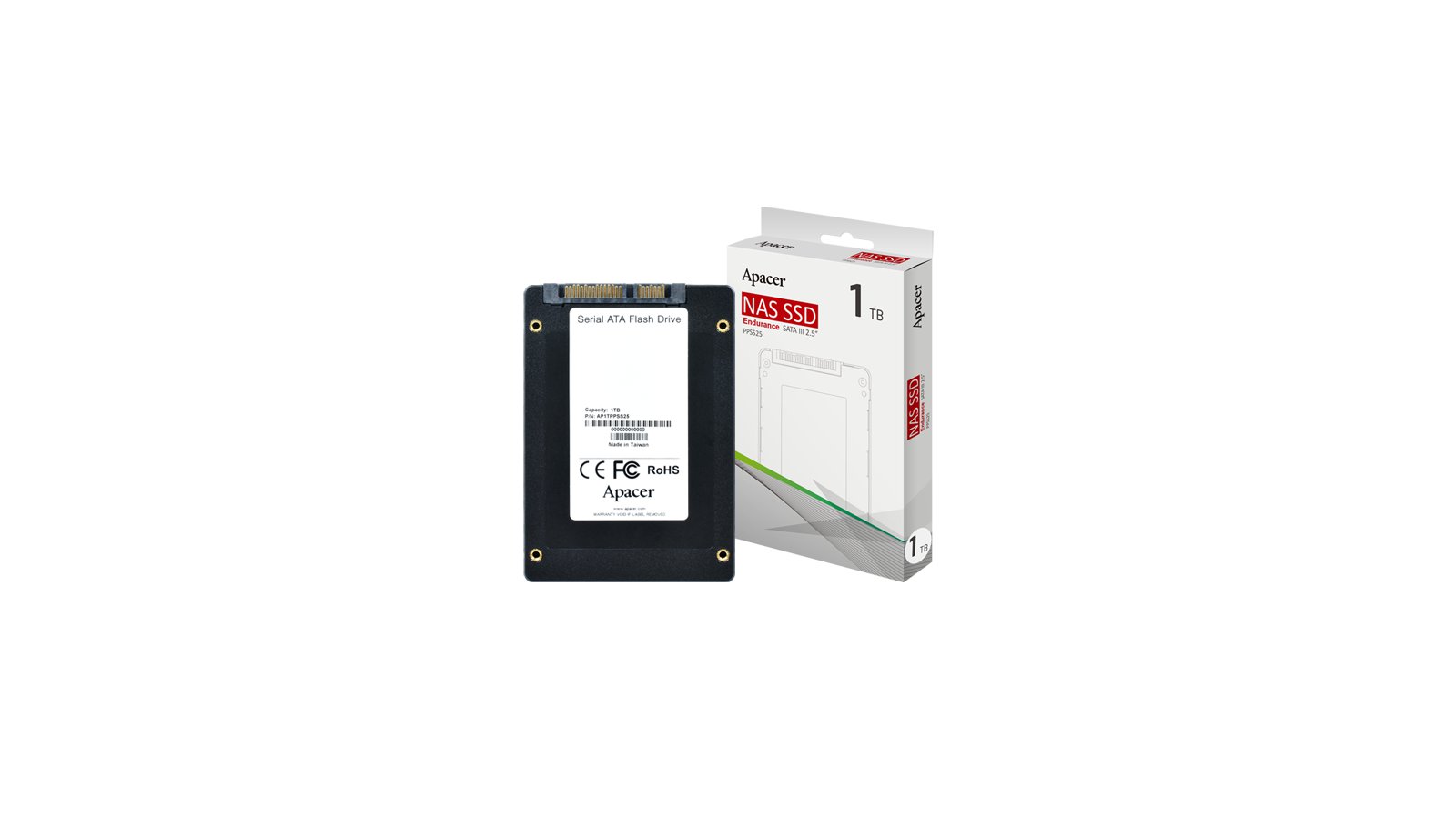
From the Crowd Supply Basics project.
These NAS-grade solid state drives (SSDs) are rated to last much longer than consumer models, so are perfect for NAS bulk storage. Choose from 256 GB (AP256GPPSS25-R), 512 GB (AP512GPPSS25-R), and 1 TB (AP1TPPSS25-R) capacities.
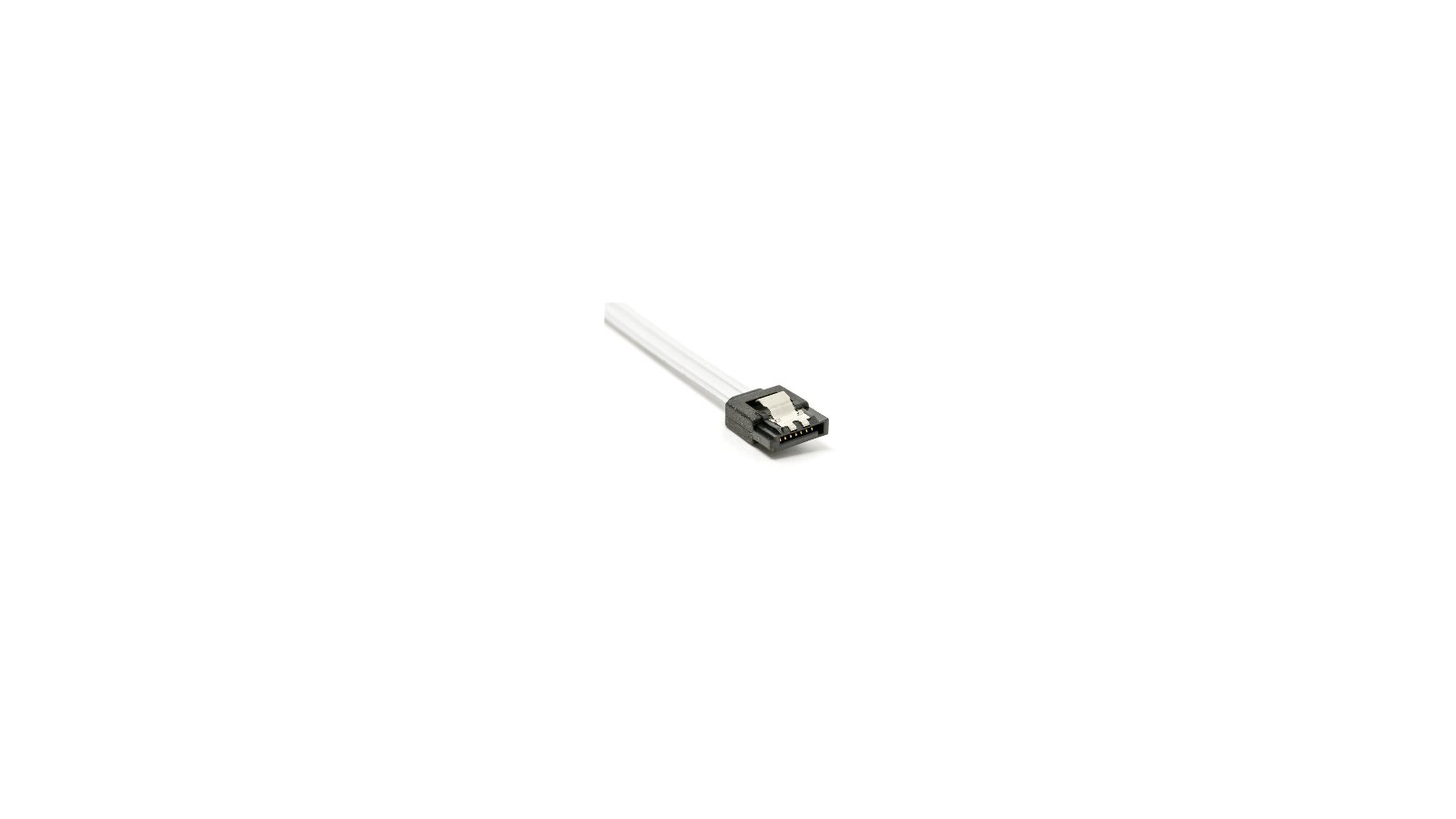
From the Crowd Supply Basics project.
A flexible cable (3M part number 5602-44-0142A-300) for connecting a SATA drive to a SATA controller board.
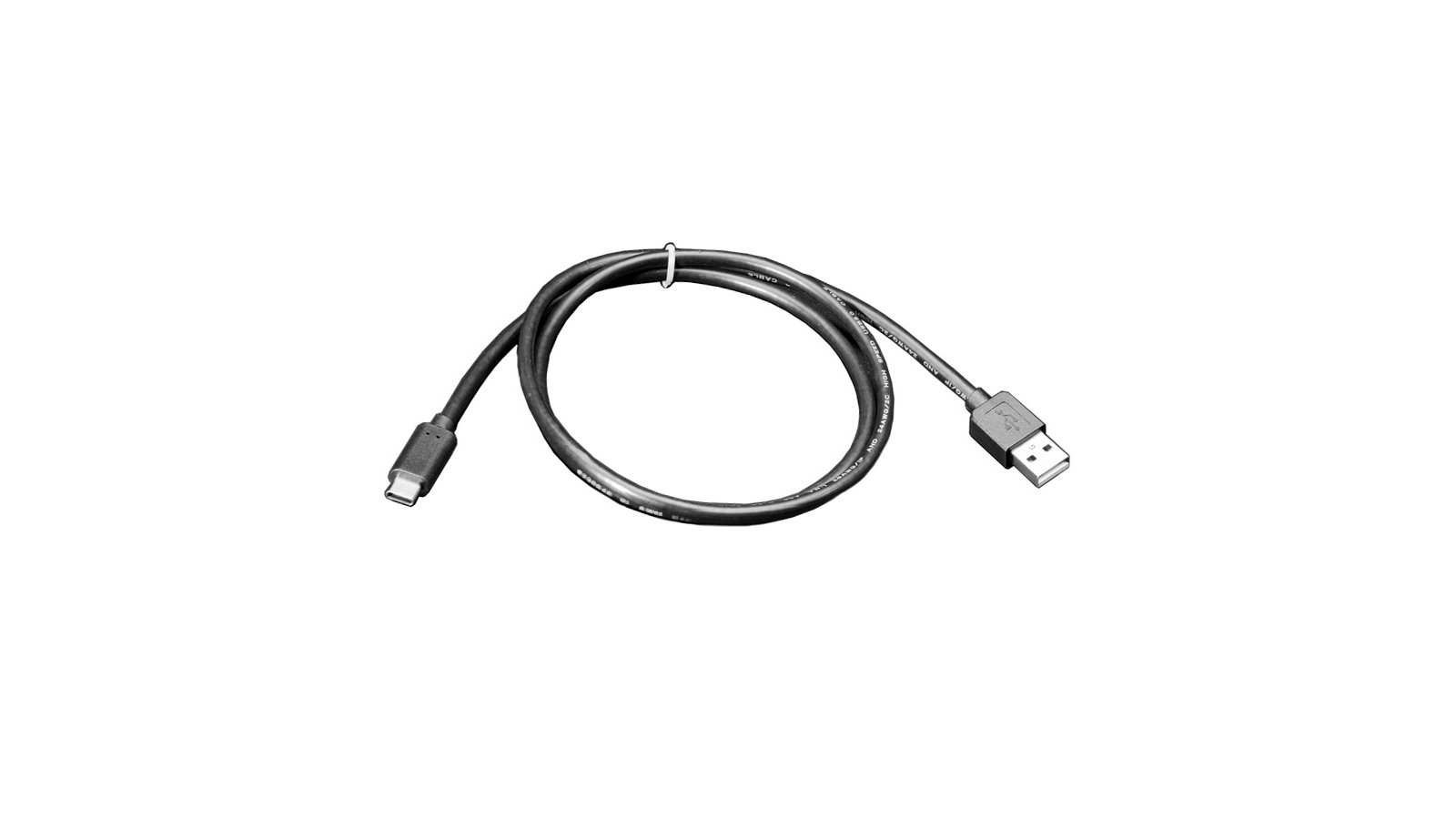
From the Crowd Supply Basics project.
Use this cable with your Ten64 Mainboard
A 100 cm cable with a USB Type-C and a USB Type-A connector.

Traverse is a design house focusing on broadband and machine-to-machine applications. Our key areas of expertise are in wireline (xDSL), wireless (LTE), and embedded Linux with an aim to leverage open source technologies such as Linux and OpenWrt as much as possible.
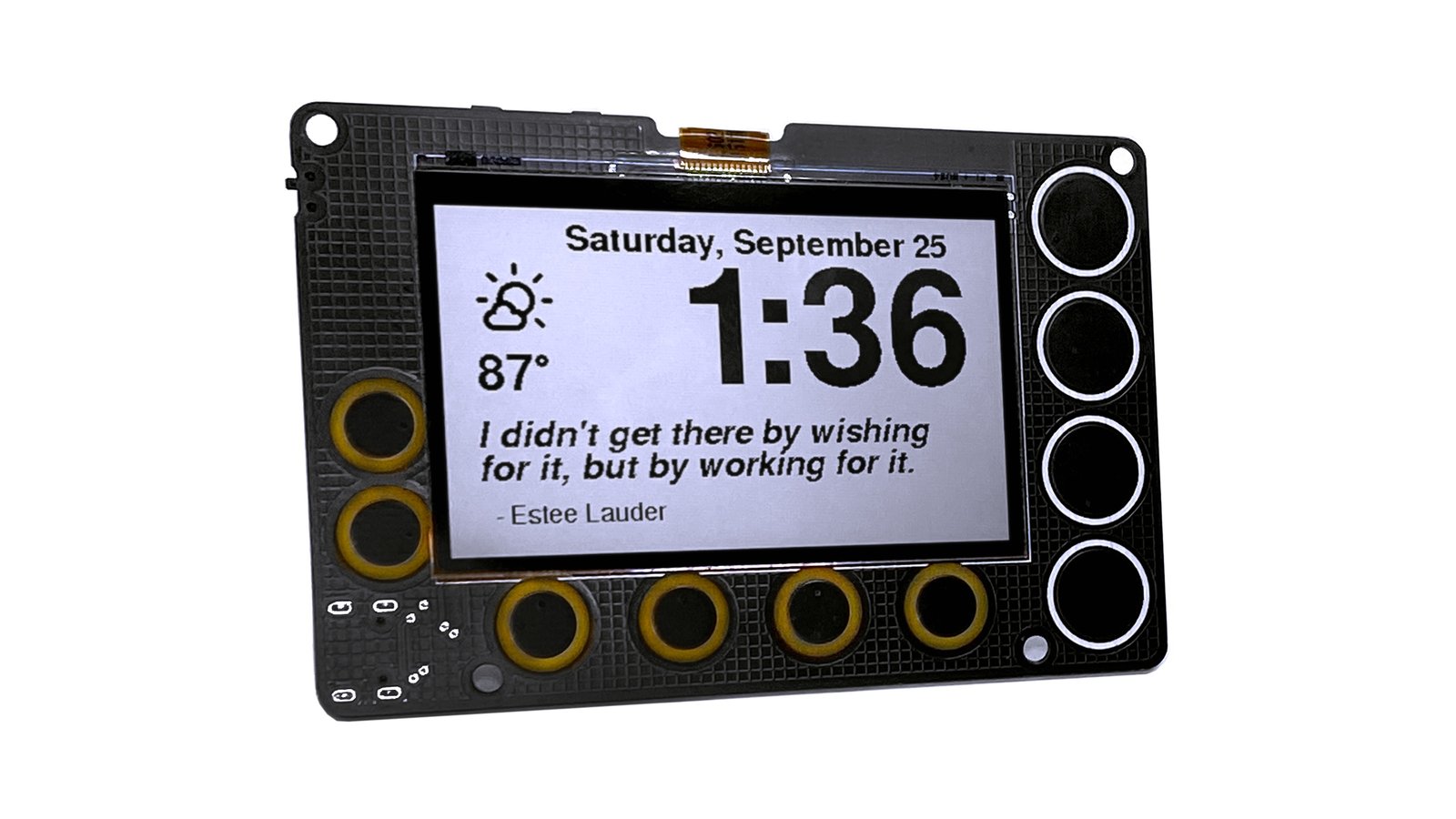
A low-power, open source, 2.7-inch IoT display powered by an ESP32-S2 module and featuring SHARP's Memory-in-Pixel (MiP) screen technology
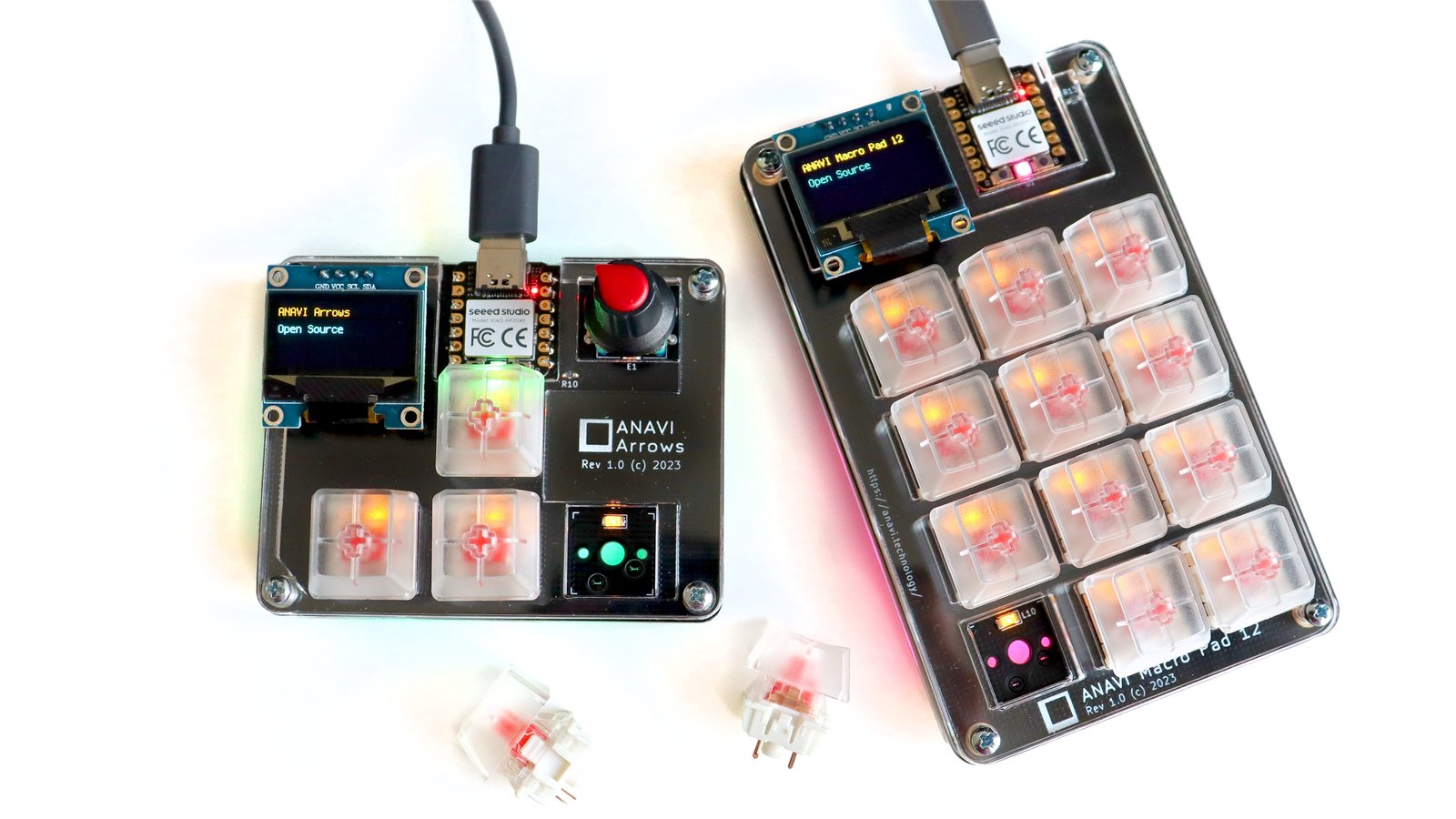
Two fully programmable, open source, no-solder, hot-swappable mechanical keyboards powered by Raspberry Pi & CircuitPython
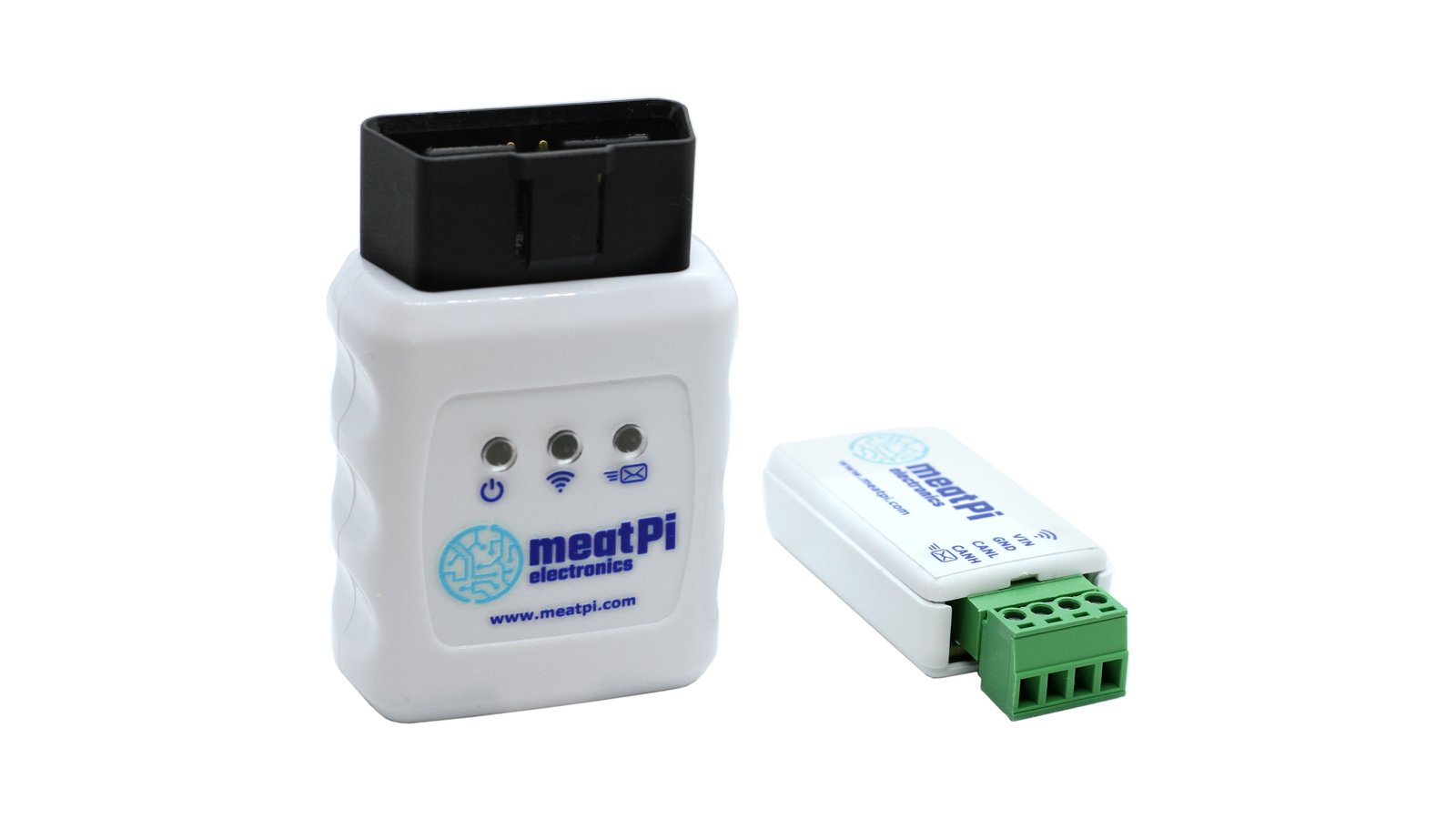
Open source, ESP32-C3 CAN adapter with USB, Wi-Fi, and BLE support